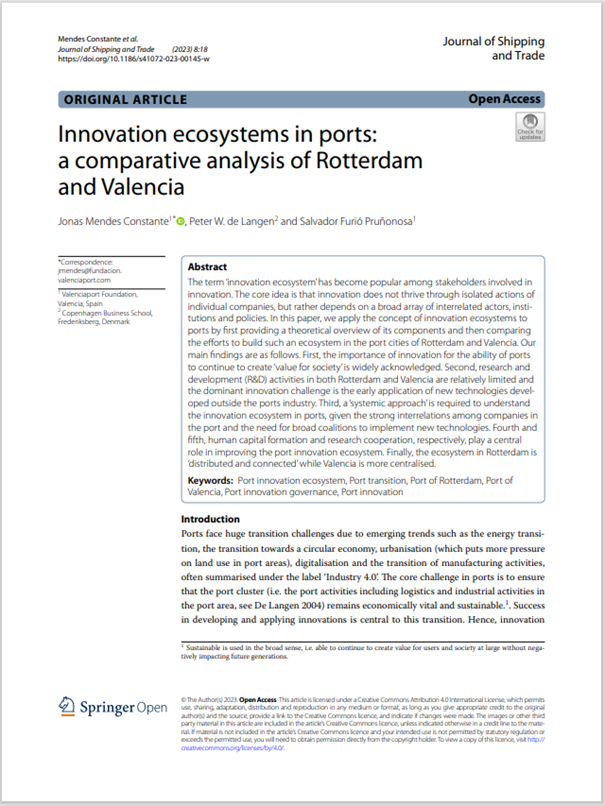Abstract
The term ‘innovation ecosystem’ has become popular among stakeholders involved in innovation. The core idea is that innovation does not thrive through isolated actions of individual companies, but rather depends on a broad array of interrelated actors, institutions and policies. In this paper, we apply the concept of innovation ecosystems to ports by first providing a theoretical overview of its components and then comparing the efforts to build such an ecosystem in the port cities of Rotterdam and Valencia. Our main findings are as follows. First, the importance of innovation for the ability of ports to continue to create ‘value for society’ is widely acknowledged. Second, research and development (R&D) activities in both Rotterdam and Valencia are relatively limited and the dominant innovation challenge is the early application of new technologies developed outside the ports industry. Third, a ‘systemic approach’ is required to understand the innovation ecosystem in ports, given the strong interrelations among companies in the port and the need for broad coalitions to implement new technologies. Fourth and fifth, human capital formation and research cooperation, respectively, play a central role in improving the port innovation ecosystem. Finally, the ecosystem in Rotterdam is ‘distributed and connected’ while Valencia is more centralised.
Keywords: port innovation ecosystem, port transition, Port of Rotterdam, Port of Valencia, port innovation governance, port innovation
Cite as: Mendes Constante, J., de Langen, P.W. & Furió Pruñonosa, S. Innovation ecosystems in ports: a comparative analysis of Rotterdam and Valencia. J. shipp. trd. 8, 18 (2023). https://doi.org/10.1186/s41072-023-00145-w
